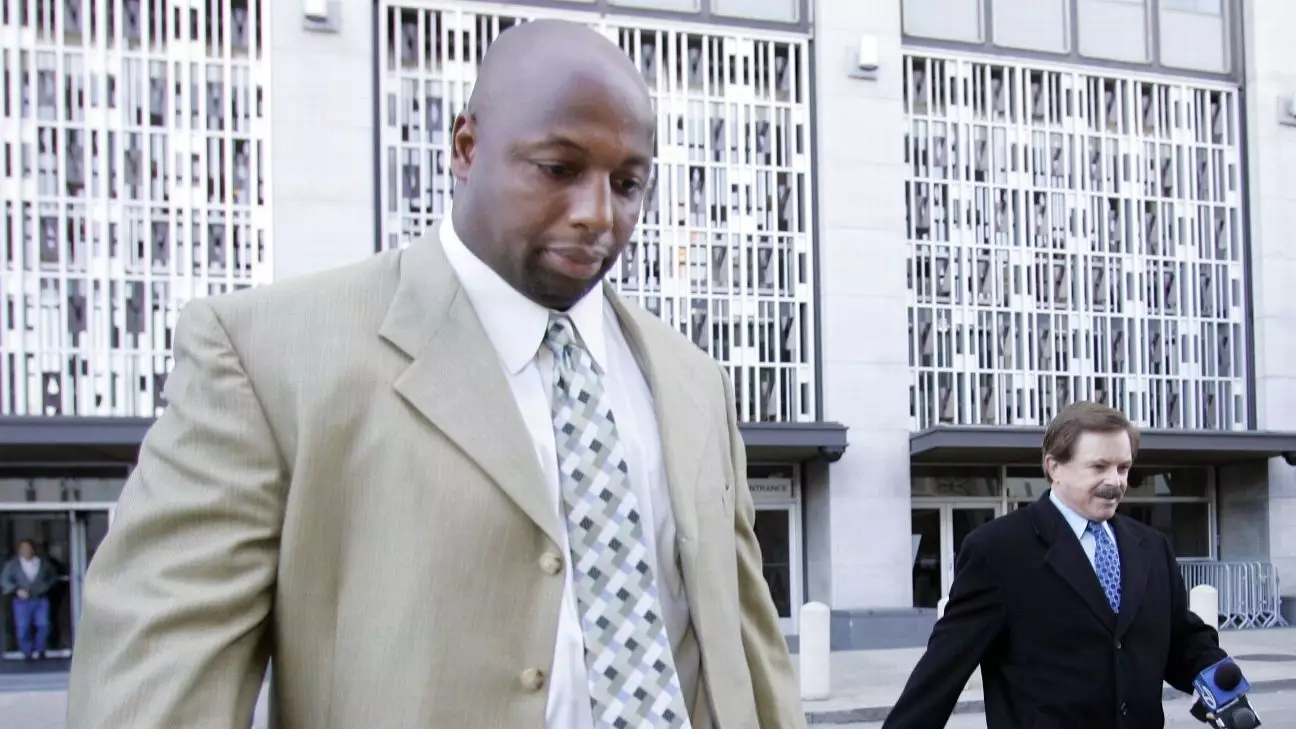Dana Stubblefield, a former NFL player renowned for his exceptional skills on the field, has found himself embroiled in a legal battle that brings to light serious questions regarding justice and fairness within the legal system. Convicted of rape in 2020 and sentenced to a draconian 15 years to life imprisonment, Stubblefield’s case has garnered attention not merely for its high-profile nature but for the complex issues it raises concerning racial bias and legal integrity. Late last year, the Sixth District Court of Appeal vacated his conviction, citing that significant racial bias influenced the outcome of his trial. This decision marked a pivotal moment in his legal journey, but the implications stretch far beyond his personal fate.
As the situation currently stands, Stubblefield remains in California’s state prison, with a judge recently refusing to grant bail pending the issuance of a remittitur from the appeals court. This remittitur is critical as it officially returns jurisdiction of the case back to the lower court, effectively determining Stubblefield’s next legal moves. His attorneys assert that since the conviction has been vacated, he should not be lodged in prison any longer. They argue that he ought to be treated as a legally innocent individual while awaiting the official ruling from the appeals court, a sentiment echoed outside the courthouse by his legal team. The implications of this situation are profound, touching on the systemic issues that plague the justice system while highlighting the complexities introduced by racial considerations in legal proceedings.
The conclusion drawn by the Sixth District Court of Appeal was particularly noteworthy in light of the California Racial Justice Act of 2020, legislation designed to actively mitigate racial bias in judicial contexts. The mention of “racially discriminatory language” used during Stubblefield’s original trial underscores a glaring concern: the possibility that the decision to convict may have been influenced more by race than by the actual evidence presented. Herein lies the broader issue; if racial bias can influence the judicial process, what does this say about the reliability and validity of our legal system as a whole?
The systemic implications are extensive. The fact that an athlete’s life and career can be dramatically altered by a conviction tainted by such bias raises alarming questions. What protections exist for marginalized individuals within this framework? Stubblefield’s case is emblematic of the obstacles faced by defendants who, like him, stand accused in a potentially biased environment.
The case has also elicited varied public responses, suggesting a polarized perception of justice that often correlates with race and socio-economic status. For every voice in support of Stubblefield, there exists an equally vocal faction calling for unwavering justice for victims of sexual assault. This dichotomy shines a light on the often one-dimensional narratives that media outlets portray, emphasizing selection bias in reporting. The manner in which complexities surrounding Stubblefield’s legal battle are presented could either reinforce harmful stereotypes or contribute to broader misunderstandings about racial dynamics within the legal system.
As Stubblefield awaits further updates in this convoluted case, the ramifications extend beyond his situation. The issues at play raise ethical questions about how our society perceives guilt and innocence—questions that can either fortify or undermine the principles of justice and equality that are foundational to the American legal system.
Dana Stubblefield’s legal saga invites a necessary reflective dialogue about not merely his fate, but the systemic flaws inherent in our justice system. As incidents of racial bias continue to surface within judicial proceedings, it will be imperative for society to challenge these established norms. Every high-profile case like Stubblefield’s is an opportunity to scrutinize existing practices and work toward an equitable legal system, ensuring that race is not a determinant of guilt or innocence. While Stubblefield’s immediate future hangs in limbo, the quest for a fair judicial process must persist as a societal imperative, demanding vigilance and reform to safeguard the rights and dignity of every individual.


Leave a Reply